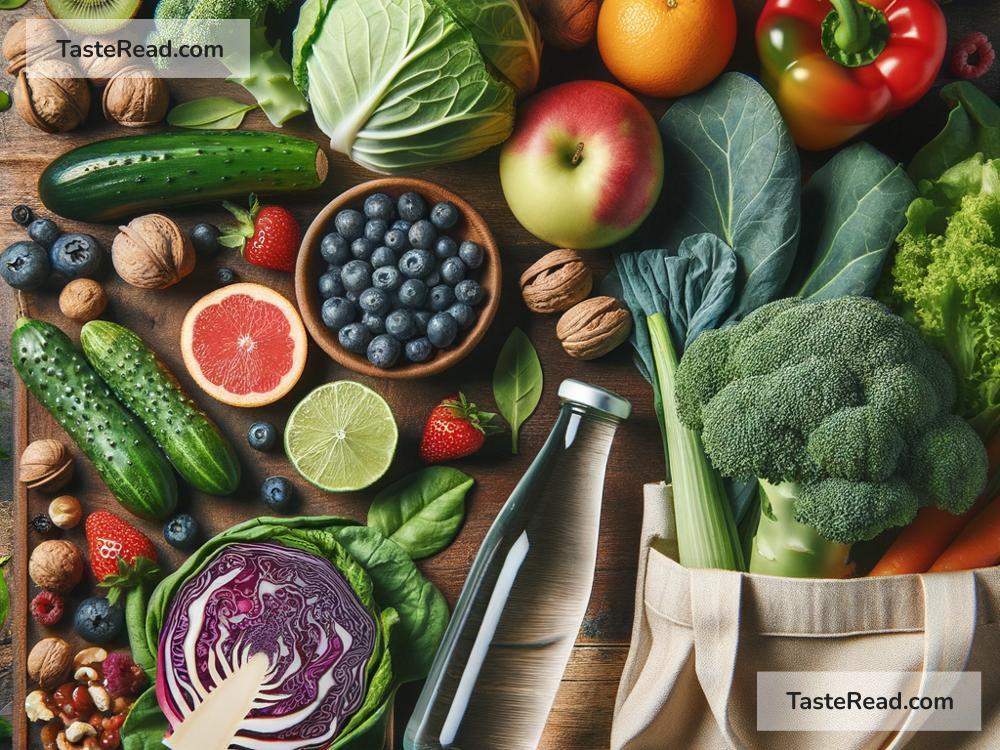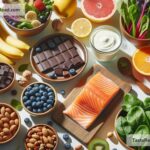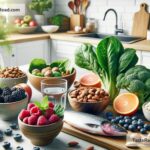Eat Well to Fight Pollution: Foods That Help You Stay Healthy
In today’s world, pollution is everywhere. From the air we breathe to the water we drink, exposure to harmful substances is unavoidable. Pollution can cause many health problems, including lung and heart diseases, weakened immunity, and even long-term illnesses like cancer. While we may not be able to avoid pollution completely, there’s good news: certain foods can help your body fight the harmful effects of pollution. The right diet can strengthen your body and protect you from damage caused by exposure to toxic chemicals and pollutants.
In this blog, we’ll explore simple, everyday foods you can include in your diet to reduce pollution exposure and stay healthier.
1. Leafy Greens: Your Detox Champions
Leafy greens such as spinach, kale, and arugula are packed with nutrients like vitamin C, vitamin E, and antioxidants. These nutrients help neutralize harmful free radicals that pollution creates in your body. Free radicals are unstable molecules that can damage cells and lead to diseases like cancer. Antioxidants act like shields that protect your body from this harm.
Additionally, leafy greens are rich in chlorophyll, which supports your liver’s detoxification process. By eating greens daily—whether in salads, smoothies, or stir-fries—you can help your body flush out some of the toxic substances absorbed from pollution.
2. Cruciferous Veggies for Cleaning Your Body
Vegetables such as broccoli, cabbage, cauliflower, and Brussels sprouts belong to the cruciferous family. These veggies contain special compounds like sulforaphane and glucosinolates that activate detoxifying enzymes in your body. These enzymes work to break down toxins and prevent them from building up in your organs.
Broccoli, in particular, is known for its ability to improve lung function and protect your respiratory system. Including these veggies in your meals can be an easy and delicious way to reduce your pollution exposure.
3. Citrus Fruits for Vitamin C Power
Citrus fruits like oranges, lemons, limes, and grapefruits are famous for their high vitamin C content. Vitamin C is a strong antioxidant that not only boosts your immune system but also defends your body against the harmful effects of pollution. It can help repair tissues damaged by toxic air particles and keep your body’s cells healthy.
Drinking a glass of fresh orange juice or adding lemon slices to your water are simple ways to include more citrus fruits in your daily diet.
4. Foods Rich in Omega-3 Fatty Acids: Support for Your Heart and Lungs
Omega-3 fatty acids can help reduce inflammation caused by pollution. Inflammation occurs when toxins irritate the body, leading to pain, swelling, or long-term damage to organs like the heart and lungs. Foods rich in omega-3s, such as fatty fish (salmon, mackerel, sardines), walnuts, chia seeds, and flaxseeds, can lower inflammation and protect your body.
If you don’t eat fish, plant-based sources like flaxseeds and walnuts can be just as effective. Sprinkle them on your morning cereal or mix them into smoothies to get a quick omega-3 boost.
5. Turmeric: The Spicy Protector
Turmeric is a golden-yellow spice that’s often used in curries and soups. Its active ingredient, curcumin, has powerful anti-inflammatory and antioxidant properties. Curcumin can help fight off damage caused by pollution particles in your body and prevent inflammation of your lungs.
To make turmeric a regular part of your diet, try adding it to soups, stews, or roasted vegetables. You can also make a warm turmeric tea with milk and honey for an evening treat.
6. Nuts and Seeds: Tiny Warriors for Big Protection
Nuts and seeds like almonds, walnuts, and sunflower seeds are rich in vitamin E, another strong antioxidant. Vitamin E protects your lungs from air pollution damage and keeps your cells healthy. These small snacks are also packed with healthy fats that support your heart health, especially when pollution threatens to weaken your cardiovascular system.
Grab a handful of mixed nuts as a quick snack, or sprinkle seeds over your breakfast yogurt for added nutrition.
7. Probiotic Foods: Strengthen Your Gut
Your gut plays a role in detoxifying your body, and healthy gut bacteria can help eliminate toxins caused by pollution. Probiotic-rich foods like yogurt, kefir, kimchi, and sauerkraut can improve your digestion and strengthen your gut.
When your digestive system is functioning well, it’s easier for your body to get rid of toxins from polluted air, water, and food. Consuming these foods daily can keep your system running smoothly and reduce pollution’s impact.
8. Drink Plenty of Water: Nature’s Detox Tool
While it’s not technically a food, water is essential for flushing out toxins from your body. Staying hydrated helps your kidneys and liver do their job of cleansing your system. Drinking clean, filtered water throughout the day ensures that your body can eliminate harmful substances from pollution.
Final Thoughts
Pollution is an unavoidable part of life, but eating the right foods can help your body fight back. Leafy greens, cruciferous vegetables, citrus fruits, foods rich in omega-3 fatty acids, turmeric, nuts, seeds, probiotics, and water are natural tools to protect your health. By incorporating these foods into your everyday diet, you can reduce the harmful effects of pollution and enjoy a stronger, healthier body.
Take small steps, start with one or two of these foods, and build healthy eating habits over time. While you can’t control the air quality outside, you can control what you put inside your body. Let food be your shield against pollution!


